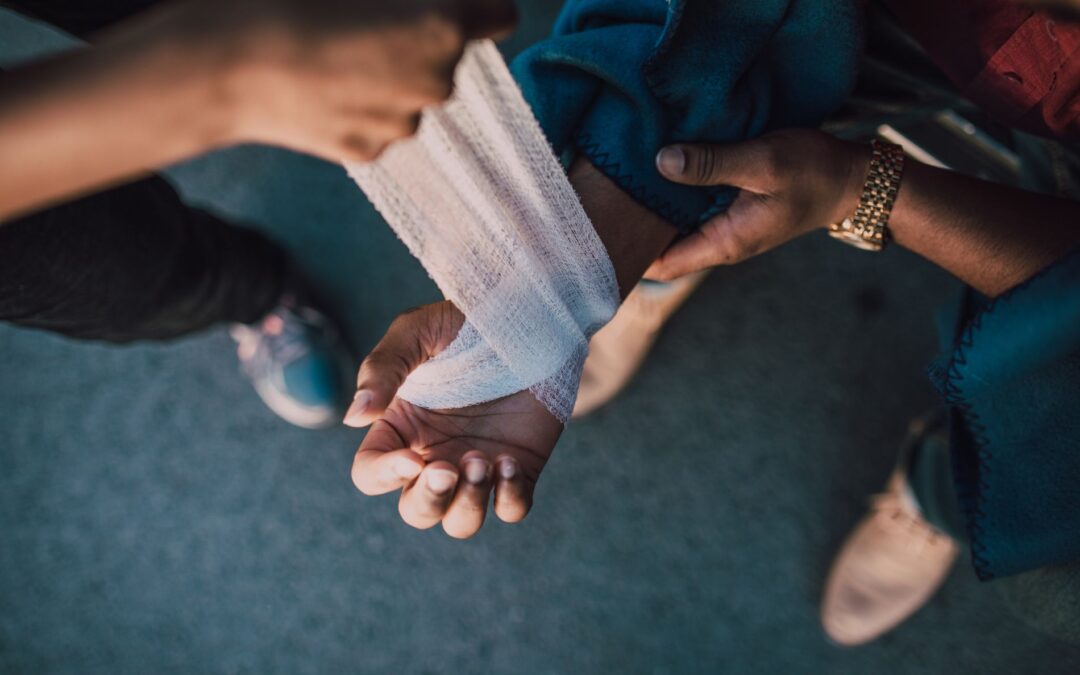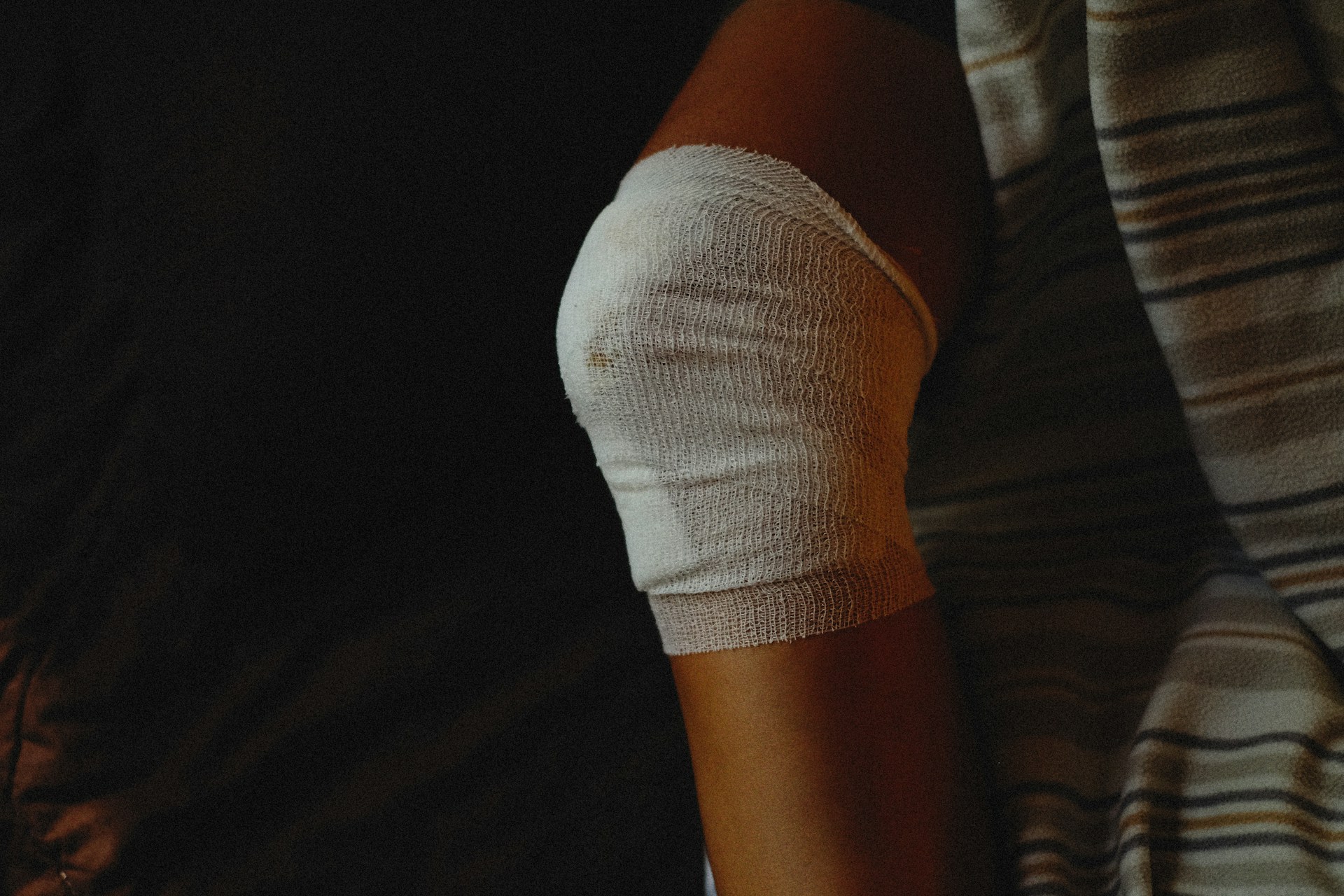Getting medical care isn’t always easy when you can’t drive. Something as simple as a trip down the road becomes a real challenge if you’re recovering from surgery, dealing with limited mobility, or going through treatment that leaves you too tired to travel. For people with wounds that need regular care, missing appointments or delaying treatment can slow healing or even make things worse.
That’s where having care come to you makes a huge difference. Instead of figuring out how to get to a clinic, you can stay at home and still receive expert help. Whether you’re in recovery, managing a long-term condition, or simply don’t have access to transportation, mobile wound care makes sure you’re not left behind when healing matters most.
Understanding The Need For Mobile Wound Care
There are a lot of reasons someone might need help getting wound care but can’t make it to an office. Sometimes it’s a recent injury or surgery, and the doctor has told them to stay off their feet. Other times, it’s more long-term. People might depend on family members for rides, live far from medical services, or have health conditions that make it hard to leave the house at all.
Let’s say someone in Brentwood is recovering from a foot ulcer and can’t walk long distances. Getting in and out of a car can be tiring or even painful. Now imagine doing that several times a week just to have a wound cleaned or checked. That’s when mobile care becomes more than a convenience. It makes continuing treatment realistic and less stressful.
The main thing is, wounds don’t stop needing attention just because getting care is hard. In fact, when a wound doesn’t get cleaned or monitored regularly, infection is more likely. It can get worse before you even notice. That’s why ongoing care is so important. Skipped visits can delay healing and, in some cases, lead to hospital stays that could have been avoided.
By having care come directly to a home or supportive care setting, people can stay on schedule, feel more relaxed, and avoid the risks that come with travel. It’s one of the few options that makes wound care accessible no matter what someone’s daily abilities look like.
How Mobile Wound Care Works In Nashville
The process starts off simple, and it’s all tailored to make things easy for the person receiving care. After reaching out, a consultation gets set up remotely. That means a licensed provider talks directly with you or a family member through a phone or video call to learn more about the condition of the wound and medical history.
From there, a care plan is shared and explained so everyone knows what to expect. The provider walks through when and how regular appointments will happen. These remote visits allow people to stay right where they are. There’s no need to get dressed up or go anywhere. When the time comes for a check-in, either the patient or caregiver uses a phone, tablet, or computer to connect with the provider. Sometimes photos are shared ahead of time. Other times, the provider walks through things live during the call.
Here are a few things that may be handled during remote wound care:
– Checking the wound for signs of healing or infection
– Guiding caregivers or patients through cleaning steps
– Recommending updated supplies or dressing types
– Answering questions about pain, drainage, or swelling
– Adjusting the care plan based on changes over time
Since everything happens where the patient is most comfortable, there’s no added stress from unpredictable travel times or long waits in the clinic. It also means quicker decisions if something begins to shift unexpectedly. With regular remote support, everyone stays in the loop, which helps the wound heal more smoothly and safely.
Advantages Of Mobile Wound Care
Getting care without traveling opens the door to a number of benefits that help people feel more supported and in control of their healing. The biggest one is convenience. There’s no need to juggle ride schedules or rely on others to help you get to a provider. You can stay inside your own home, where everything is familiar and easy to reach.
Mobile care also allows providers to better understand your day-to-day setup. When someone can see how a space is arranged or what tools are already available, they’re more likely to give real-world advice that actually works. That kind of personalized care makes a difference, especially when wounds need frequent attention.
Safety is another big reason people prefer this option. Traveling can expose you to germs or put extra strain on an injury. At home, you reduce that risk. Plus, it’s just easier to relax when you’re not rushing to a waiting room or sitting through traffic.
Here are some of the main benefits of mobile wound care:
– Zero travel stress or discomfort
– Faster check-ins and flexible appointment times
– Fewer delays in care due to weather or transportation problems
– One-on-one attention in your own space
– Ongoing support that actually fits into your life
For one Brentwood resident who lives alone, arranging rides had become a regular hurdle. He’d missed two appointments in a row before switching to mobile care. Once he started getting check-ins at home, the healing process finally picked up. It was a relief both medically and mentally.
Scheduling Your Mobile Wound Care
Setting up a mobile visit begins with a quick conversation. You can call or fill out a short form so a provider can get in touch. From there, the next steps go at your pace. People often choose a time that works around their usual routines, like after breakfast or once a caregiver is available to help with the call.
Once it’s time for the appointment, make sure your phone or tablet is fully charged. Pick a well-lit room or spot near a window. It helps the provider see the condition of the wound clearly. If someone else will be helping during the virtual visit, try to have that person nearby.
A few simple steps can make the remote visit smoother:
1. Write down questions ahead of time
2. Keep your current supplies and clean dressings nearby
3. Grab a pen and paper for notes
4. Have someone support you during the call if lifting or showing the wound is hard
5. Let the provider know if anything has changed since the last check-in
Mobile wound care works best when there’s clear communication. Sharing small changes, like more pain or different drainage, can help the provider fine-tune the plan. That feedback means problems can get handled early, giving you a better chance at healing faster.
Support That Moves With You
When driving isn’t an option, wound care shouldn’t come to a stop. Remote visits give you a safe, smart way to stay on top of your treatment. Whether you’re recovering from surgery or managing a long-term condition, mobile care keeps healing steady while fitting into the life you already lead.
With fewer hurdles and more support, people in Nashville are finding that wound care at home gives them the freedom to heal without distraction. Your space, your comfort, and your schedule remain front and center while staying true to your recovery goals.
If you’re searching for a more convenient way to continue healing in comfort, consider exploring wound care at home in Nashville. Southern Wound Care offers a comprehensive approach that prioritizes your needs and preferences, allowing you to receive expert treatment without leaving your home. This tailored care fits smoothly into your daily life, ensuring a steady path to recovery.




